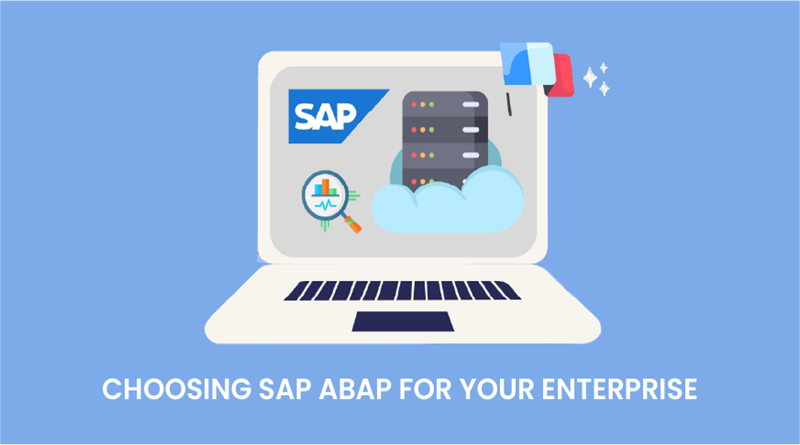The Ultimate Guide to Custom Product Software Development

Wherever we look, we are surrounded by software. Our mobile phones, laptops, and even cars now have their own software that they rely on. Major and minor companies use various types of software to conduct their business.
But the question arises, is software developed in bulk like many other products, or are they made for some specific companies or tasks? Well, the answer is both. But today we are going to focus on the development of custom software. We will discuss its importance and other important aspects surrounding it.
What is Custom Product Software Development?
Custom product software development is not a new concept but it is becoming more popular in the last few years. This type of software development is used to build a custom product, which can be anything from an app to a website, to website-based software.
The first step in this process is defining the specific features that need to be included in the product. This will often involve brainstorming to determine what features people want in the final product and how they can best be implemented into it. Once these features are defined, they are then scaled down into a prototype of working, but a smaller product. After the design of the new software is finalized, it is developed by computer programmers and engineers who take care of the software’s usability and design. They also make sure it will work properly on different operating systems and devices.
Understanding the advantages of custom software development
Meets your business requirements
Custom software development is a process that is tailored to meet the specific needs of a business. When you develop custom software, you are able to choose from a variety of technologies and platforms. This ensures that the final product will be able to handle all the necessary tasks for your business.
Custom software can be developed for any industry or function, including but not limited to: accounting and finances, security, customer service, and CRM. The benefit of custom software is that it can be customized for your specific needs and it will not have any bloatware or other features you don’t need.
Automate manual functions
Custom software development is the process of developing a software program to meet the needs of an individual company. This type of development can be advantageous for companies because it allows them to automate any manual operations that they may have.
With custom software, companies are able to automate the tasks that their employees would normally have to do manually. This can save money and time in the long run because employees won’t be spending as much time on these tasks which means they will have more time to work on other projects
Save money
When you create a custom software solution, you have complete control of its features and design. This means that you can avoid paying for features that are unnecessary or not relevant to your business. It also gives you the opportunity to make changes as needed without having to wait for new updates from a vendor or developer. It’s also possible to add new features as your business grows without paying for upgrades or additional licenses.
Software development is an expensive process, but when it’s done on a custom basis, it can lead to big savings in the long run.
Security
Custom software development has many advantages over other methods of developing software. One of the most important advantages is security. Companies can hire developers who are experts in security to make sure that the app they are building is secure and won’t be hacked easily. It enables organizations to protect their data from unauthorized access, which can be achieved by using encryption methods and other security measures.
Updating legacy systems
Custom software development has the advantage of being able to update legacy systems because they are not constrained by the limitations of legacy systems. Developers have the freedom to use new technologies and advance their projects as they see fit. This is different from legacy systems which are stuck with outdated technologies and cannot be updated.
Constant technical support
Custom software development has the advantage of constant technical support. When you hire someone to develop custom software for your company, they will be available for any questions or concerns that may arise. This is not the case with off-the-shelf software. Once you buy it, it’s up to you to find answers to any technical questions that come up.
Considerations before initiating custom software development
Technical expertise
It is important to know the type of software you are developing. What are the requirements? What are the features that you need to build? Is it a web app, desktop app or mobile app?
There are many technical aspects that need to be taken into consideration before starting development. You should have a plan for what you want your software to do and how it will do it. This will help you determine which programming language or framework is best suited for your project.
Understanding the user’s demands
Understanding the user’s demands is important before you start developing custom software. You should be able to anticipate the needs of your users and deliver what they need.
The following are some of the steps that you can take to ensure that your software will meet the needs of your users:
- Conducting market research.
- Understanding how the current market is doing in terms of software solutions.
- Gathering feedback from potential users and evaluating what they want in a custom software solution.
- Evaluating new trends and technologies in order to find out what may become popular in the future and incorporate them into your product roadmap.
Software Hosting and Distribution
Planning software hosting and distribution are important before you start developing custom software. It will help you decide on the features, the user interface, and the backend.
You need to consider what type of hosting you want for your custom software. Will it be in-house or cloud-based? Cloud-based hosting is more cost-effective but it may not be suitable for your business if security or data management is important to you.
You should also consider how your custom software will be distributed to users. There are many ways of distributing custom software that depends on how technical your audience is and how much control they need over their experience with the product.
Deployment
Deployment is the last phase of software development and product strategy. It involves deciding how the final product will be made available to your customers. There are many ways in which you can deploy your software such as releasing it as a standalone product, integrating it with existing products, or providing services around it.
Post-launch maintenance and support
It is essential for entrepreneurs to consider post-launch maintenance and support before starting the development.
The post-launch maintenance and support include:
- Developing a plan for continued product improvements
- Developing a plan for information security
- Maintaining the system
- Handling inbound customer service requests, etc.
The aforementioned points and explanations will help you get a better understanding of the development of custom softwares. It will make you understand the need for custom software as well as the things you should consider before you dive into developing one.
Read also: The Process of ‘Customer Enablement’ Made Easy by a Technology Solutions Provider





